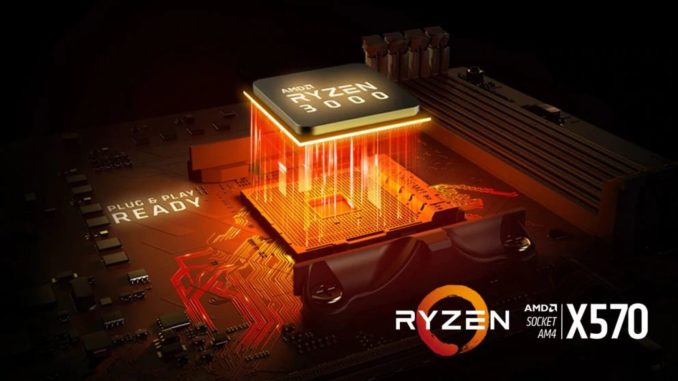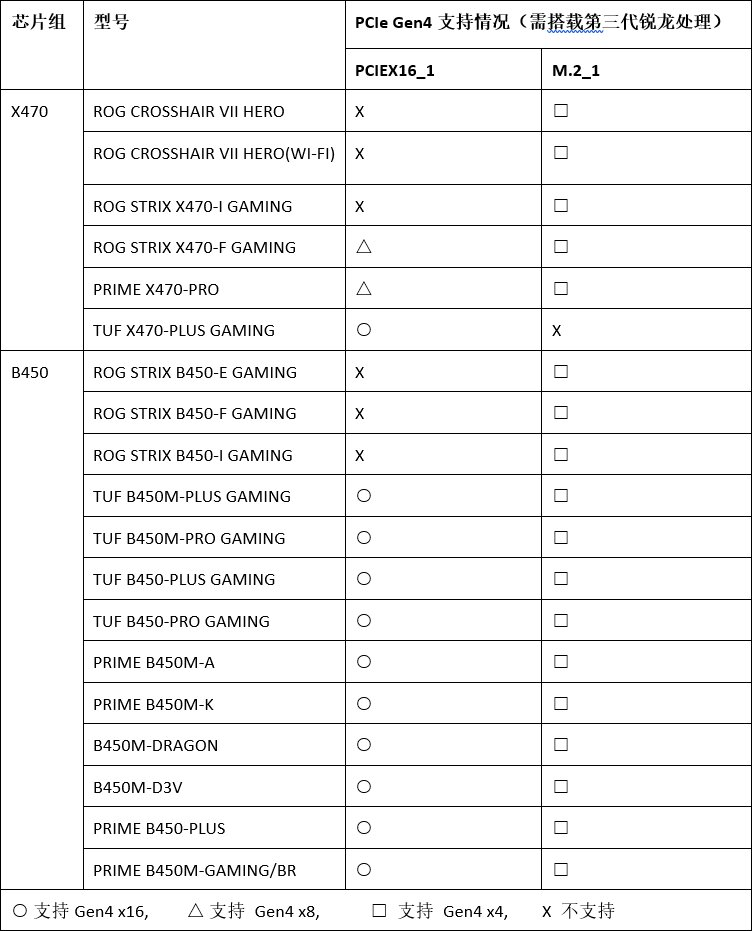
With Ryzen 3000 came PCIe 4.0, but only the X570 motherboards currently support the standard. Asus now also unlocks older X470 and B450 models.
Is PCIe 4.0 really necessary?
With the launch of the new Ryzen 3000 processors, AMD focused on one technology in particular. The new processors are the first mainstream generation to support the new PCIe 4.0 standard. Compared to PCIe 3.0, this standard doubles the bandwidth once again. This means, for example, that even faster memories can be connected. For graphics cards, the faster connection currently brings less, but will be relevant in the future.
PCIe 4.0 currently requires not only a Ryzen 3000 processor, but also an expensive X570 motherboard. However, the new processors also use the AM4 socket and are therefore easily compatible with older motherboards. But the PCIe 4.0 support is omitted here. In the run-up there were already indications that some motherboards should be compatible with the faster standard at least at the first slot, which is directly connected to the processor via 16 lanes. After the introduction of Ryzen 3000, AMD announced that this support is not generally available. This is because the older motherboards are not necessarily designed to meet the higher PCIe 4.0 requirements.
Asus enables PCIe 4.0 on X470 and B450 motherboards
But now there is still a ray of hope for users of older X470 and B450 motherboards. As reported by Mydrivers, the motherboard manufacturer Asus has released PCIe 4.0 support for 19 motherboards in whole or in part. Apparently, the full scope of the processor can be used. With numerous motherboards, not only the first slot, but also a M. 2 slot is connected with the fast standard.

Surprisingly, the high-end motherboards are largely left empty-handed. The Asus ROG Crosshair VII Hero and Hero Wi-Fi don’t get PCIe 4.0 on the first x16 slot, just like the Asus ROG Strix X470-I Gaming. The Asus Strix X470-F Gaming and Prime X470-Pro models only get limited support with up to eight lanes, which would be equivalent to PCIe 3.0 x16 in terms of bandwidth. Only the Asus TUF X470-Plus Gaming gets full support for PCIe 4.0 x16 on the first slot. It gets even more curious with the B450 motherboards. Of these, only the ROG Strix models do not support the new standard on the first slot. All TUF, Prime and the smaller Micro-ATX entry-level motherboards get full support for PCIe 4.0.
Even the first M.2 slot can be connected directly from the processor via PCIe 4.0. All listed motherboards, with the exception of the Asus TUF X470-Plus Gaming, have this feature. Mydrives also tested this slot and reported that with a corresponding SSD the speeds of an X570 motherboard were reached without any problems.
The old motherboards remain an alternative to X570
The fact that Asus was the first manufacturer to actually release support for PCIe 4.0 via the BIOS gives reason to hope for good alternatives to the X570 chipset. Apart from the much better features provided by the X570 motherboards, the biggest advantage is the faster PCIe standard. Should even more manufacturers now restore support for it via BIOS updates, the X470 and B450 motherboards currently remain a good and, above all, inexpensive alternative. After all, X570 will probably remain the only new chipset for Ryzen 3000 in the longer term. B550 and A520 will not follow until 2020 – and will not master PCIe 4.0. However, it is also possible here that the first slot and a M.2 slot are each connected with the faster standard.

Be the first to comment